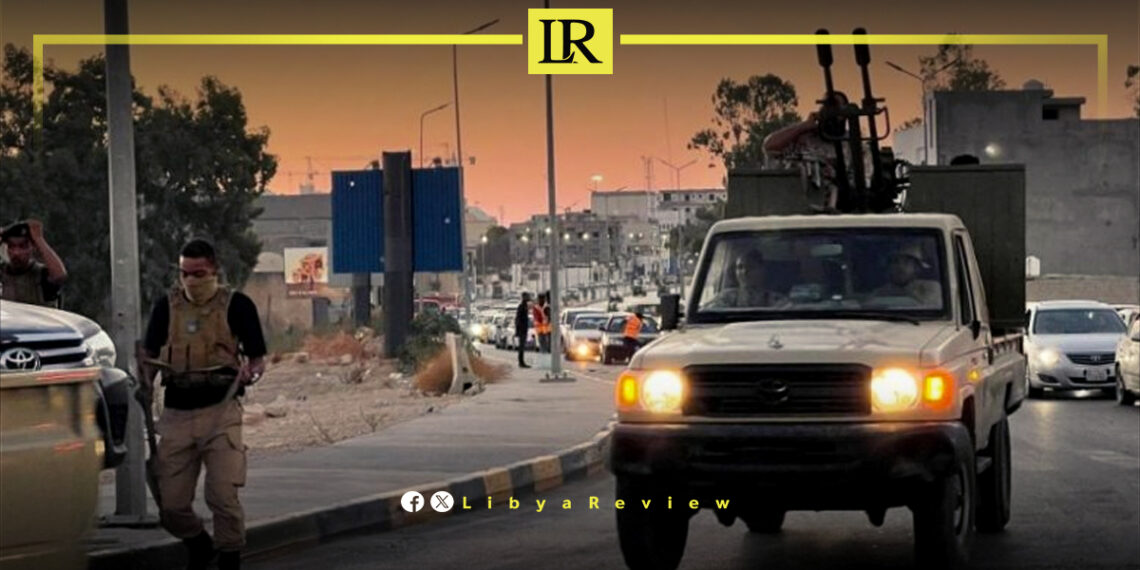On Thursday, Libya saw a major mobilization of security forces as troops gathered outside the Libyan Intelligence Directorate in Tripoli, responding to the reported abduction of Brigadier Mustafa Ali Al-Wahaishi. Al-Wahaishi, who heads the Central Security Directorate within the Libyan Intelligence Service, was reportedly taken shortly after leaving his office in Tripoli’s Sabaa district on Wednesday evening.
His whereabouts remain unknown, raising concerns over potential instability within Libya’s already volatile security landscape.
Eyewitnesses reported an immediate buildup of armed forces around the intelligence headquarters, signaling heightened alert and concerns about possible escalation. The incident, first reported by Libya Press, has sent shockwaves through the capital. The disappearance of a senior official such as Al-Wahaishi is unusual. It underscores the ongoing security challenges Libya faces, particularly with the influence of independent militias and complex power dynamics that persist in Tripoli.
Al-Wahaishi’s abduction highlights the complex struggles within Libya’s security structure. Since the 2011 uprising, Libya has been fractured by political divides and factional conflicts, with multiple governments and shifting alliances complicating efforts to build a unified state security apparatus.
Various militia groups, some loosely affiliated with government bodies, continue to hold significant sway over parts of the capital, frequently operating outside of centralized control. These groups often vie for influence and resources, occasionally clashing with official security forces, leading to disruptions and threats to key officials.
This abduction also highlights broader issues within Libya’s fragile security network. Despite efforts by Libya’s Government of National Unity (GNU) to integrate militias and other armed groups into state-controlled security roles, the influence of these groups remains strong.
Attempts to centralize authority have often been hampered by internal rivalries and loyalties that are divided between state entities and local militia factions. The abduction of a senior intelligence figure like Al-Wahaishi reflects the persistent risks and underscores the difficulty of establishing a reliable, cohesive security system in Tripoli.


